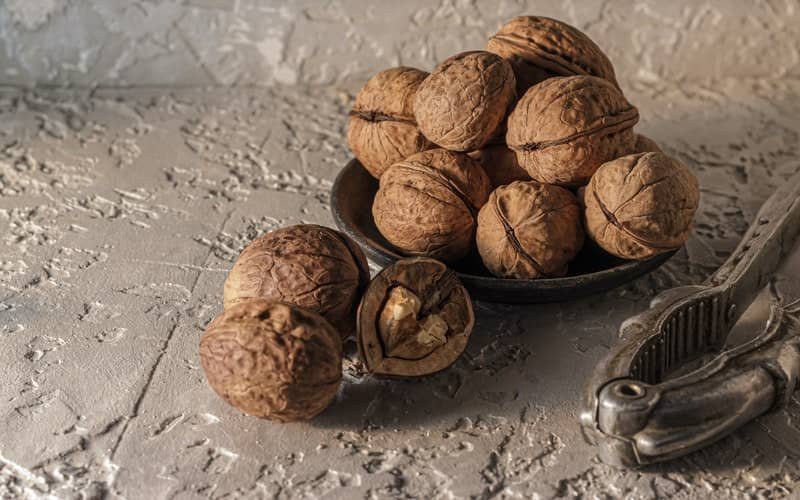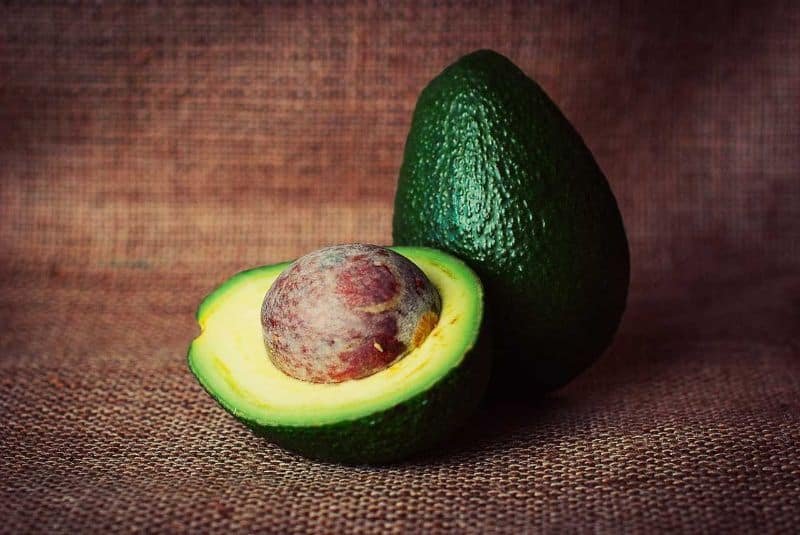Best Foods For Depression Based On Research: Top 12 Foods That Help Fight Depression

🎓 This article is Research-Based. It features links to research and scientific papers that back the claims of our authors.
Depression is a serious mental health condition that affects millions of people each year. While there are many different ways to treat depression, one of the most effective is by changing your diet.
Eating foods that are beneficial for depression can help improve your mood and make you feel better overall. In this blog post, we will discuss the 12 best foods for depression and how they can help you fight this condition!
Best Foods For Depression
The following list consists of 12 foods that help fight depression. Use the jump links below to jump to the food of your choice or scroll down to read the whole story.
1. Turmeric: A Spice That’s a Superhero for Your Brain
Turmeric is a spice that comes from the ginger family. It is a common ingredient in Indian food and gives curry its bright orange color.
Some research has shown that turmeric can have mood-boosting properties. For example, a study published in the Journal of Affective Disorders found that when people with bipolar disorder took curcumin (one of the active ingredients in turmeric), they experienced significant improvements in their overall depression scores compared to those who didn’t take it.
In fact, not only did it improve their mood, but also their energy levels and their ability to perform daily activities.
2. Dark Leafy Greens: A Nutrient-Dense Inflammation Fighter
If you were to choose the healthiest food of all, the most nutrient-dense item available to us to eat, it would be dark, leafy greens – no contest.
Spinach, Kale, Swiss chard. Greens are the first of the G-BOMBS (greens, beans, onions, mushrooms, berries, seeds) that Joel Fuhrman, MD, describes in his book The End of Dieting —the foods with the most powerful immune-boosting and anticancer effects.
“These foods help prevent the cancerous transformation of normal cells and keep the body armed and ready to attack any precancerous or cancerous cells that may arise,” he writes.
Leafy greens fight against all kinds of inflammation, and according to a study published in JAMA Psychiatry, severe depression has been linked with brain inflammation.
Leafy greens are especially important because they contain oodles of vitamins A, C, E, and K, minerals, and phytochemicals.
3. Walnuts: The King of Nuts

A 2010 study conducted by UCLA and published in the Journal Biological Psychiatry found that walnuts help improve brain health due to their high concentration of omega-3 fatty acids.
Researchers found that participants who ate 75 grams (about 2 1/2 ounces) of walnuts daily experienced a significant improvement in mood and working memory, which is your short-term memory.
Another study also showed that eating walnuts may benefit those with major depressive disorder.
4. Avocado: The Healthy Fats You Need

Avocados are loaded with healthy fats, which help keep your brain at its peak and ward off mood swings.
The results of a study published in the International Journal of Obesity said that those who had the highest levels of fatty acids in their diet were 21 percent less likely to become depressed compared to those who didn’t eat many fatty foods.
Avocados also provide B vitamins, fiber, potassium, vitamin K, magnesium, and phytochemicals that all fight depression.
RELATED: Best Vitamin B Complex Supplement & Everything You Need To Know In Between
5. Tomatoes: A Morning, Noon, and Night Superfood
Tomatoes are especially powerful when eaten cooked as opposed to raw. That’s because the antioxidant lycopene increases as tomatoes are cooked.
A study published in the Journal of Affective Disorders showed that those who had higher levels of lycopene in their blood had a lower risk for depression.
TIP: We recommend using fresh tomatoes instead of pasta sauces because many commercial ones are filled with sugar or high-fructose corn syrup.
6. Berries (Antioxidants): All Types!
A study published in the Journal of Nutrition says that berries, all kinds of them, are a great snack for mental health because they contain loads of antioxidants.
In fact, researchers say that these little nutrition powerhouses can help improve your cognition and make you more alert.
We recommend blueberries, blackberries, raspberries, strawberries—all kinds. But be sure to go organic when buying non-organic berries because conventionally grown ones tend to be heavily sprayed with pesticides and other chemicals. And always eat them fresh instead of canned or frozen.
7. Quinoa & Amaranth: The Super Grains
Quinoa and amaranth are some of the only grains on earth with a perfect 1:1 ratio of omega-6 to omega-3 fatty acids, which is great for your brain health.
A study published in the NCBI in Nutrition says that people who have better ratios of omega-6s and omega-3s have decreased depressive symptoms while also having less inflammation.
TIP: Be sure to get amaranth and quinoa in their whole form rather than flour or pasta because they haven’t been stripped of their healthy bran or germ, making them richer in nutrients.
8. Beans (Zinc): A Little Bit of a Lot
Beans, especially white beans, are high in zinc, which is essential for your body’s immune system and brain functions.
A study from the NCBI found that people who were deficient in zinc saw an increase in depression, while those who had enough zinc did not develop depressive symptoms.
Beans also provide B vitamins, fiber, potassium, vitamin K, magnesium, and phytochemicals that all fight depression.
RELATED: Magnesium Breakthrough Review: Is This The Best Magnesium Supplement In The Market?
9. Chia Seeds: Super Seeds for Depression
Chia seeds are the highest plant-based source of omega-3 fatty acids. They also provide an excellent source of antioxidants, fiber, protein, calcium, manganese, molybdenum, and copper.
A study published in the NCBI found that chia seeds help with mood stabilization and depression because they contain magnesium and omega-3s.
TIP: We recommend sprinkling chia seeds on my yogurt or oatmeal in the mornings (and sometimes even mix them into a smoothie). You can also add them to soups or salads later in the day.
10. Sardines / Salmon (Omega 3): Fish for the Brain

Sardines and salmon are loaded with essential fatty acids, which break down in your body to produce mood-boosting hormones like serotonin.
A study published in the Journal Neuroscience says that omega-3s can alleviate symptoms of depression even if you’re already on antidepressants.
Canned sardines are packed with calcium, vitamin D (which is essential for de-stressing), phosphorus, selenium, choline, iron, magnesium, potassium, zinc, and other important nutrients.
In fact, one 3-ounce serving of sardines provides more than 100 percent of your daily value of vitamin D. Plus; most store brands are pulled from waters that have been deemed sustainably fished by organizations like the Marine Stewardship Council.
11. Dark Chocolate (Cacao): Not Such a Guilty Pleasure
I know, I know. If you’re trying to reduce stress and anxiety, chocolate is one of the last things you should be eating. But dark chocolate made with at least 70 percent cacao contains anandamide, which is a natural mood-elevating chemical similar to what your body produces when exercising.
It’s also filled with antioxidants that fight depression, making it an excellent occasional treat for people who are depressed.
Just make sure you opt for organic brands without added sugars or fats if possible.
TIP: According to research published in the Journal of Proteome Research, cocoa powder may help regulate appetite hormones that trigger feelings of fullness, leading to better weight control. You can enjoy the cocoa powder in many ways (my personal favorite is making homemade chocolate milk).
12. Bananas (Magnesium): Up and at ‘Em

Bananas are a great source of magnesium, which has been shown to help reduce symptoms of depression. One study showed that people who were deficient in magnesium had more depressive episodes than those with normal levels of magnesium.
Magnesium-rich foods also release energy into your body, which can improve your mood and fight fatigue. Like other green vegetables, Bananas are high in folic acid, another helpful nutrient for fighting low moods and depression.
The vitamin B6 in bananas helps create serotonin (the feel-good chemical) in the brain, so you’ll always have a smile on your face when you eat this wholesome fruit.
TIP: Add bananas to your post-workout smoothies because they’re an excellent source of potassium and antioxidants.
Conclusion
There’s a reason we are eating one of these foods on our breakfast right now. These foods will help you fight depression and be the best person you can be! Always remember, living a healthy lifestyle helps prevent disease and makes you feel good.
🙏 If you enjoyed reading our article on the Best Foods For Depression, please consider sharing it with persons who might be struggling with depression. It’s something that will help them overcome this horrible state of mind without using any harmful medicine.
